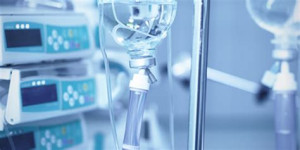The Great Lothian IV Fluid Collaborative
Here you will find details of an IV Fluids project which is linked with a National Programme. NHS Lothian have updated their guidelines on the Intranet, updated the Quick Reference Guide (QRG) from 2015 and created a QR code making links to the QRG much easier whilst on duty
Please note:
Prescribing the wrong type or amount of fluid can do serious harm.
Assessing fluid requirements calls for care and attention, with adjustment for the individual patient. This is as important as safe drug prescribing.
The evidence base for fluid prescribing is changing. Over-replacement may be as harmful as under-treatment. Choice of replacement fluids remains contentious.
This guidance document guides fluid and electrolyte management in medical and surgical ADULT patients.
In sick patients, it is easy to give excess salt and water but very difficult to remove them. Fluid retention in sick patients with leaky capillaries contributes to complications such as ileus, nausea and vomiting, pressure sores, poor mobility, pulmonary oedema, and wound and anastomotic breakdown. A low serum sodium is more commonly caused by excess water rather than too little sodium.
Urine output is usually less during illness or after trauma such as surgery because the kidney conserves both salt and water. Too much intravenous fluid makes this worse. Cellular dysfunction and potassium loss result. Excess chloride increases sodium and water retention.
Urine output is an unreliable guide to fluid requirements in sick patients. In particular,
Oliguria does not always require fluid therapy
